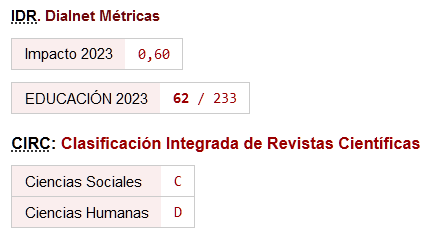Entrepreneurship and Social Work: a comparison between Social Work students and graduates
Palabras clave:
Entrepreneurship, Social Work, social services, students, graduates, business creation.Resumen
Social Work is a profession dedicated to help people who have a problematic situation to be solved. Social Workers have abilities and resources to resolve problems and they use the abilities of the person who needs that help to empower them. The ambit of those professionals is very varied: public administration, private companies or NGOs. In this context, we analyze the role played by entrepreneurs. In this work we have collected information that allows us to draw conclusions about social entrepreneurship and the vision that social workers have about that movement. To do so, we have sent a questionnaire, previously validated by experts in the field, aimed at Social Work students and graduates. The treatment of this informaticon has enabled us to find out their opinion about entrepreneurship, the differences in the way of thinking between both groups concerning the creation or not of companies and if they believe that they might be entrepreneurs in the future. We have detected little entrepreneurial spirit among social workers, partly due to the lack of this entrepreneurial culture not only in society but also in the curriculum of Social Work degrees.
Descargas
Citas
Anzola, S. (2005): De la idea a tu empresa. México: McGraw-Hill Interamericana Editores.
Arents, M. (2004): Keys to Successful Performance Management: Getting Past the Excitement of Technology to Achieve Results. Business Intelligence Journal, 9 (1), pp. 41- 48.
Ayerbe, M. & Larrea, I. (1995): Jóvenes directivos y actitud empresaria. En: Vida cotidiana y nuevas generaciones: III Jornadas de Sociología, marzo de 1995, Facultad de Ciencias Políticas y Sociología, pp. 43-64. Bilbao: Universidad de Deusto.
Baron, R. (2000): Psychological Perspectives on Entrepreneurship: Cognitive and Social Factor in Entrepreneurs´ Success. Current Directions in Psychological Science, 9 (1), pp. 15-18.
Baumol, W.J. (1990): Entrepreneurship: Productive, Unproductive and Destructive. Journal of Political Economy, 98 (5), pp. 893-921.
Bueno, E. (2007): Organización de empresas. Estructura, procesos y modelos (2ª ed.). Madrid: Ediciones Pirámide.
Carton, R. B., Hofer, C.W & Meeks, M.D. (1998): The entrepreneur and entrepreneurship: Operational definitions of their role in society. Annual International Council for Small Business Conference. Singapore.
Dees, J.G. (1998): Enterprising nonprofits. Harvard Business Review, 76 (1), pp. 54-67.
Dees, J.G & Anderson, B. (2006): Framing a theory of social entrepreneurship: Building on two schools of practice and thought. En: Research on social entrepreneurship: Understanding and contributing to an emerging field. ARNOCA Occasional papers series, 1(3), pp. 39-66.
Dolabela, F. (2003): Pedagogía emprendedora. Sao Paulo: Editora de Cultura Ltda.
Douglas, T.J. & Judge, W.Q. (2001): Total Quality Management implementation and competitive advantage: the role of structural control and exploration. Academy of Management Journal, 44, pp. 158-169.
Filella, J. (1997): La personalidad empresarial. Iniciativa Emprendedora y Empresa Familiar, 6, pp. 13-19.
Gibb, A. A. (1993): Key factors in the design of policy support for the small and medium enterprise (SME) development process: an overview. Entrepreneurship & Regional Development, 5, pp. 1-24.
Hawkins, K. & Turla, P. (1987): Compruebe sus dotes de emprendedor. Bilbao: Deusto.
Irizar, I. (2003): Cómo crear una empresa. Barcelona: Gestión 2000.
Lupiañez , L., Priede, T. & López-Cózar, C. (2014): El emprendimiento como motor del crecimiento económico. Boletín Económico de ICE, 3048, pp. 55-63.
Maqueda, J., Olamendi, G. & Parra, F. (2003): Tu propia empresa: Un reto personal. Madrid: Editorial ESIC.
Rock, A. (1987): Strategy vs. Tactics from a Venture Capitalist. Harvard Business School Review, 65 (6), pp. 63-67.
Stewart, W. & Roth, P. (2001): Risk taking propensity differences between entrepreneurs and managers: A meta-analytic review. Journal of Applied Psychology, 86, pp. 145-53.
Timmons, J.A. (1994): New Venture Creation-Entrepreneurship for the 21st Century. New York: Mcgraw-Hill.
Uribe, J. & de Pablo, J. (2011): Revisando el Emprendedurismo. Boletín económico de ICE, 3021, pp. 53-62.
Weenekers, A.R.M. & Thurik, A. R. (1999): Linking Entrepreneurship and Economic Growth. Small Business Economics, 13, pp. 27-55.











